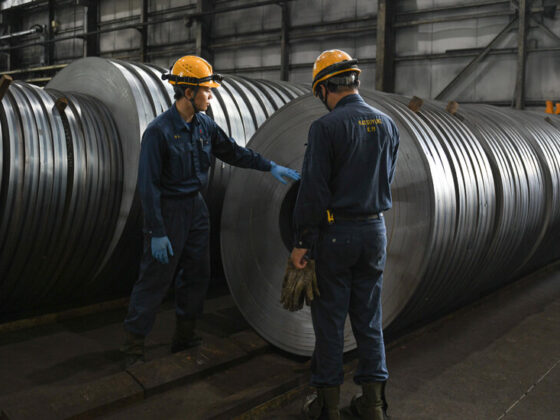Within 10 years, today’s guest went from zero experience in real estate investing to millionaire through investment properties. Now, she’s reverse-engineering her path, showing you how to do it faster, even if you’re just getting started on your first deal. Almost every (successful) real estate investor goes through a few crucial “stages.” Today, we’re breaking them down so YOU know where you stand.
First: Do you know how a mortgage works? If so, you’re already further ahead than Leka Devatha was a decade ago. She was not only an immigrant to the United States, but also had extremely basic financial knowledge, far from what a “real estate investor” should possess. However, even starting from zero, Leka was able to scale not only quickly but efficiently. A decade later, she’s one of the leading voices in real estate investing, with a financially freeing rental portfolio and fun projects that make her massive six-figure profits.
We’ll detail the different investing stages, from complete real estate rookie to expert investor, plus show you how to get the funding for your first or next deal, how to buy back your time, and make more money while having fewer properties (it’s very possible).
Dave:
This investor found a formula that works in his market and he’s stuck with it for almost two decades now. He has almost 30 rental units, which will give him the option to retire from his day job by age 50 without compromising his lifestyle in retirement. That’s the power of real estate. You choose the strategy, you control the investments, and over time they’ll start putting life-changing money into your pocket. Let’s hear how we, Hey everyone. I’m Dave Meyer, head of Real Estate Investing here at BiggerPockets. I’ve been buying rental properties for 15 years now, and on this podcast, we teach you how to achieve financial freedom through real estate investing. Today we’re bringing you the story of an investor named Tony de Giacomo. Tony lives in Rhode Island and he’s invested through almost every era of the last couple of decades, starting before 2008, then continuing after the crash and buying properties consistently through the pandemic and up to today.
Dave:
And what I think Tony’s career shows is that it’s possible to buy real estate at almost any time. You just need to focus on a strategy, understand what a good deal looks like in your market, build the necessary relationships, and be willing to act when the right opportunity arises. Tony is doing all this and has been for a long time. He now has 12 different properties that are going to fund his retirement long before the traditional retirement age, and he’s not doing any crazy direct to seller, time consuming marketing or risky financing strategies. He’s just following the principles we preach on this show every single week. So if you’re not sure how to get started buying properties or even if real estate is right for you, Tony’s story might change your mind. Let’s bring him on. Tony, welcome to the BiggerPockets podcast. Thanks for being here.
Tony:
Happy to be here. Thanks for having me.
Dave:
Yeah, this going to be a fun episode. I’m really eager to hear about your investing journey. It sounds really interesting. So tell us where it began.
Tony:
So where it truly began was when I was a child. So my father, who was an immigrant, came to America factory worker, heard from a coworker that he bought a rental property and the tenants are helping him pay down the mortgage, and he’s hoping that would be his financial freedom. So my dad thought that was a great idea for himself. So throughout the years, he bought a few of those properties when I was very young and I would paint with him, I would collect rent with him, I would be a property manager with him. That’s really where it started. So it was something that I always planned to do and right about once I finished college is when I started buying my first rental property, which looks very different from what I invest in today, but that’s when I truly dipped my toes into real estate, so my early twenties.
Dave:
Wow, okay. That’s a really cool story. I imagine that getting exposed to the property management side of investing right away could take you one of two ways, right? You could either really like it and say, wow, this is a powerful financial mechanism, or there are some people who get a taste of that and just don’t like it at all. But it sounds like you liked it from a young age.
Tony:
Yeah, I think that I enjoyed the process, but I watched it long enough to see the financial freedom part as well. I got to fully understand what time in real estate can do for you. So it was an obvious choice for me to invest in real estate.
Dave:
And you said you got your first rental property relatively young. Were you just straight into it trying to do it full-time or were you doing another job as well?
Tony:
I was doing multiple jobs, so I was that kid that would work breakfast at a restaurant, then go out. I started a landscaping business. I was mowing lawns in the afternoon. I was working at a pizza place at night and I was living at home, so I was saving every dollar that I possibly could, and I put a huge down payment on a small condo, which in hindsight, I would’ve done things differently. But I’m glad I dipped my toes into the real estate game, and that was my first property. It was $110,000 condo that I rented for $750 a month and I put 50% down.
Dave:
Awesome.
Tony:
As a young kid, and that was my beginning. And you stayed living at home? I stayed living home. I actually lived at home until I bought my fourth property. So I own three rental properties living at home, and I’d go around and collect rent and go back to mom and dad’s house.
Dave:
I imagine that really helped. Being able to save every dollar that you were earning from those other jobs and put it back into real estate must have really accelerated your investing career.
Tony:
Absolutely. So I was putting down as much as I possibly could to keep mortgage payments as low as possible. Again, like I said earlier, I think I would’ve, knowing what I know today, I would’ve handled that differently. I would’ve leveraged things a little bit more, but there’s no mistakes. There’s only lessons learned. So I’ve learned from that and I’ve grown from that. Can I ask you what year this was when you were starting out? So that was in 2004. I bought my first property.
Dave:
And so these first three deals, it sounds like at least or maybe more, were prior to the crash, right? So how did that go for you?
Tony:
So you hit that perfectly? Yes. The first three deals were before the oh eight crash, and then I started evaluating deals and everything seemed super exciting. So the three prior deals didn’t look as great anymore. Now I’m trying to GOP up as many properties as possible, so now I’m putting down as little as possible and I’m buying two or three properties in a year and really being able to pick and choose the properties I want to buy. People are reaching back out to agents are asking you, how can we put this deal together? I had my real estate license during that time as well, so I built a lot of connections in the real estate game. So closing attorneys knew about me. They knew I’d like to invest in properties, real estate agents, so sometimes I was able to buy a property that they just couldn’t move, and I’d named my price and sometimes that would stick. So the next five or six deals I bought were incredible. In hindsight, it’s interesting. We were
Dave:
Just talking about leverage, and I’m curious if you think that having put down a lot more money in that those first three deals helped you get through the 2008 situation because some people who are putting down three 5% during that time didn’t make it through the other side.
Tony:
Sure. So on top of owning the rental properties, I’ve always had a stable job. So I own the landscape and business that started in high school and has grown to where it is today with eight employees, 200 plus accounts. And so managing and bringing that income in has allowed real estate to kind of grow on its own. So there was always a backup financial plan if needed. So there wasn’t much of a fear of losing those properties or not being able to pay the mortgage there. I think even with small down payments, it would’ve been, okay,
Dave:
Now let’s talk about those deals you did during the financial crisis. Everyone I’m sure is looking back at those times thinking, man, I wish I had bought. But it was also kind of scary during that time. The bottom was kind of dropping out of all these markets and there was no clear sign of when it was going to turn around, and at that point, I don’t think anyone knew how quickly prices would recover over the next decade. So what were you looking for during that time period?
Tony:
Sure. So whether this is right or wrong, I was kind of looking for the cheapest multifamily properties that I could get my hands on. I did hear one time in a podcast someone saying that that’s often a mistake. People are looking for good deals rather than good properties. And I kind of wish I heard that earlier because those properties appreciated much faster in my local area than these rental properties. However, that’s what I was after. So I was buying properties where a longtime landlord had a troubled tenant, the place was destroyed, they wanted nothing to do with it, they weren’t going to put it on the market, and they would say, just assume the worst. I mean, I bought properties where I wouldn’t even look in some of the units and they told me to assume the worst in those units, and sometimes it was the worst.
Dave:
Oh god,
Tony:
It’s pretty rough. I purchased properties where the radiators froze and the heating system was gone. I purchased a few inhabitable properties that just needed full gut job renovations, and that’s where I started using line of credits as a huge tool. Still to this day, think line of credits are most valuable tools that you can use in real estate. So being able to purchase these properties with a line of credit, renovate them with a line of credit, and then putting traditional financing on it, freeing up that line of credit again, and then just rinse and repeat. For
Dave:
Those in our audience, Tony, who aren’t familiar with the term line of credit and what it can be beneficial for, can you just fill them in?
Tony:
Sure. So a line of credit is typically equity that you have on a property that you can go to the bank and say that I want to borrow against this property without putting a complete fixed term on it. What you’re looking to do is basically have the ability to borrow against it and pay interest only on it, and you only pay interest if you are borrowing that amount of money.
Dave:
I mean, you can kind of think of it like a credit card. You’re basically only paying when you use the money that you are tapping. And so oftentimes what happens to real estate investors is you have this very fortunate problem where you build up a lot of equity in your properties, which is great, that’s adding to your net worth, but sometimes it gets a little bit trapped in those properties and you can’t use it. Then that net worth that you’ve built up to go acquire new properties and to scale your portfolio. And some people choose to either sell those properties, some people choose to refinance those properties, but a line of credit, I agree with you, Tony, is sort of this underrated way where you can hold onto that property, keep the equity there, but then use that asset with a bank to borrow against it. And you can use that either to acquire new properties or to renovate properties too. To pay for construction is also a common way that it is used as well.
Tony:
One of the other ways that I’ve used that is for new construction. So I’ve done some spec homes, so you don’t need to go into the construction loan route, which is typically pretty expensive. The bank is very involved, so now you have the freedom of basically acting like cash. So the line of credit is essentially using cash, so you can make cash offers on properties, you can build a house, you can pay your subcontractors through cash and then put your fixed financing on it. Or if you’re selling the property, taking those funds and paying down the line of credit to zero again and starting all over.
Dave:
Yeah, it’s a great way to really leverage the assets that you already have in real estate. I want to sort of fast forward to 2020, the pandemic, how you’ve been scaling in recent years. We hear it from investors all the time. They spend hours every month sorting through receipts and bank transactions trying to figure out if they’re actually making any money, and when tax season hits, it’s like trying to solve a Rubik’s cube blindfolded. That’s where baseline comes in. BiggerPockets official banking platform. It tags every rent, payment and expense to the right property and schedule E category as you bank. So you get tax ready financial reports in real time, not at the end of the year. This way, you can instantly see how each unit is performing, where you’re making money and losing money and make changes while it still counts. Head over to baseline.com/biggerpockets to start protecting your profits and get a special $100 bonus when you sign up. That’s baseline.com/biggerpockets. Thanks again to our sponsor baseline. Let’s fast forward a couple of years, Tony, because I want to talk about how you’re scaling in today’s market. Let’s just go to 2020. Where were you at that point?
Tony:
So at that point I continued to invest and some of the early properties just kept exploding in value, and so equity was there. So I continued to pull line of credits. I was really gearing up to have the ability to purchase more properties scale up, and I’m glad I positioned myself that way because once COVID came, there was a lot of uncertainty what would happen with real estate. And in my area, like many other local areas, real estate prices just went through the roof. So these two families or small rental properties were being gobbled up by first time home buyers because that was their only ability to get into real estate or buy a home. So now we’re competing as investors with first time home buyers and we can’t make the numbers work. So it was time to pivot and get away from two or three family homes and go into other things. So some of the more recent projects, I built an industrial garage complex, so renting out to contractors, which is a really great business, I wouldn’t mind doing that again because the tenant pool is easy to work with. Contractors storing their equipment or whatever they need to store their business for, it’s their livelihood, they’re paying their rent, there’s not much to maintain. It’s basically a square box with a bathroom That has worked out really well so far.
Dave:
That’s pretty cool. I imagine that being in the industry, running a landscape company, you probably understand this really well and we’re able to see a unique market opportunity. I don’t know hosting the show for a while now. I haven’t heard anyone do something like that. It seems like some mashup of self storage and industrial property. It’s pretty cool.
Tony:
It’s basically what it is. So the unit size that are 20 by 40, so they’re 800 square feet with large oversized garage doors. I think they’re 14 feet tall, so you can get larger equipment in there and the tenant pools a mixed match of a plumber, someone who stores cars in there, another person just stores household items in there. So just an oversized self storage unit. It’s a very clean business.
Dave:
I’ve noticed that the same thing you said that in the last couple of years, the two to four unit segment has gotten extremely competitive, whether it’s from homeowners, it’s basically the house hacker dream,
Tony:
And
Dave:
As Tony noted, the numbers for someone who’s buying to use it as a house hack and as an investor are just different because as a house hacker, you don’t need to cashflow to make that work for you. You just need to lower your overall cost of living, whereas I assume, Tony, you are looking for a solid cash on cash return on par with your other investments and two to four units just aren’t there in a lot of markets right now. I’m noticing that change a little bit in the last couple months, but I definitely agree over the last few years. I’m curious why you went to more of an industrial model instead of, for example, going into larger multifamily or single family homes, which would be a business that you sort of were already running.
Tony:
Sure. So on top of that, I’m still dabbling into other projects. So one other project I’m currently working on is taking an old commercial building and converting it to condominiums. Oh, cool. So we’re probably about a year and a half into this project with approvals, some environmental stuff. It’s along the river, so there’s coastal resource management. We’re working with town planning. It’s a comprehensive plan. So I have an investor that I’m working with on that project, and we’re basically going into a 14 unit condominium complex that we’re going to be building out.
Dave:
Wow, that sounds like an awesome project. And what’s the timeline going forward from here?
Tony:
So we are coming up for final voting at the town. So we had multiple planning and zoning meetings to iron out all the details. Our next meeting is for our final approval, which there was no request at our last meeting for updated details. So once that happens, we start the environmental work because it was a dry cleaners before we purchased it, so there was some chemicals that went into the ground. So we have to work with that and then we start our project of renovating it into a residential complex.
Dave:
Nice. Well, good luck. It sounds like a super cool project. I’m curious, Tony, you started buying a condo, you bought a bunch of multifamilies. What was the transition like to doing some more active work, whether that’s heavy renovation or this ground up development kind of stuff that you’ve been talking about? Was that transition difficult?
Tony:
I think along the way there was enough smaller projects that got me to this point. I did purchase a couple pieces of land that was just raw land that needed approvals. So single lots for a single family home that I work with engineers and architects on to put up a home to sell. And I think just those small projects pretty much gave me the background that I needed to scale up. Essentially it’s the same process just at a larger scale.
Dave:
And in those smaller projects, did you get to know contractors in particular, subs, that kind of stuff that you could use in the bigger ones?
Tony:
Absolutely. So I feel like with every project I constantly fine tune that list. That list of people has changed over the years, but when I find someone that I really enjoy working with that I can trust, it’s so valuable to be able to call that person and say, Hey, I’m doing this project. You are going to be the plumber for this project, and I know they’re going to treat me right and treat me fairly. So I’m constantly trying to build that team so that I don’t need to interview and shop new people every single time.
Dave:
I’m sure for a lot of people listening, the appeal of new construction and these conversions is pretty high. It’s appealing to me too. Would you recommend following the path that you have where you started small and built incrementally rather than going from a couple of rental properties jumping straight to larger multifamily or more hands-on construction type projects?
Tony:
Yeah, I would say growing slowly is probably the safest approach to it. There’s a lot of things that can go wrong in real estate and you want to eliminate as many of those as possible. So through time and experience and projects, you hope to be able to eliminate as much of those as you can.
Dave:
Got it. Yeah, I think that’s a really great sort of measured approach. And if you’re in this game for the long term, this is just a really good way to mitigate risk. It may mean that you’re not getting the upside of these huge construction deals right away, but these construction projects are risk too. The reward comes with risk, and to me at least the way to mitigate risk is to build up to that much in the way that Tony is talking about and taking a couple extra years. I’m not saying take a decade, but building your way, building confidence, learning those skills can be a great way to enjoy some of the benefits of these bigger projects without taking on more than you can chew right up front. So Tony, we sit here in 2025. Can you give us a little overview of what your portfolio sort of holistically looks like today?
Tony:
Sure. So it’s about 15 total properties that probably adds up to 25 to 30 doors. It’s a mixture of the industrial garage of five unit property and then mostly two to three unit homes in a few single family properties.
Dave:
How do you think about growing it from there? Because you have a bunch of different assets. Are you trying to grow in one particular area? Are you thinking about trading out any of the older properties or what’s your plan?
Tony:
So I think the older properties are the retirement plan. So that will be the cashflow that allows me to live the lifestyle that we want to live. Once those are fully paid off for that cashflow will be our income. What I want to do is projects, like I’m doing the condo project, I want to do maybe small subdivision projects where I’ll build multiple houses or take a raw piece of land, convert into 10 buildable lots, and then build out one or two homes a year. So those are the kind of projects that I want to start diving into because you weed out some of the competition and being able to do that, and you kind of project multiple years of real estate projects where if you do a cosmetic makeover where you can do it in three months, well you got to start searching for the next project pretty quickly after that.
Dave:
The older ones being your retirement plan is that’s just because you have fixed debt and the cashflow has just risen to a point where they offer the best cash on cash return.
Tony:
Well, yeah, and also because I did mostly 15 year financing on most of them, most of them are either paid off for or close to being paid off for. So that cashflow now is being used to reinvest into real estate. But the day I decide to retire from my nine to five, which is essentially my landscaping business, I can use the rental income as my passive income to continue to live. So
Dave:
What are your goals going forward? You have so many cool things going on. Do you have a plan to retire a date in mind?
Tony:
It’s a good question. I’m 41. I would like to retire from the need to work at 50 years old, but to truly retire is probably not something that I’m interested in. These real estate projects are fun for me. Taking a home that needs a facelift that might need new landscaping, new siding, windows, bathroom, a cosmetic makeover, that’s a fun project. I like checking in on it. I like seeing it come to life and I love the day that we’re listing it for sale or for rent. Walking someone through a property and seeing them get excited about something that you did is pretty cool. So that doesn’t feel like work to me.
Dave:
I love that. I think so many people focus on quitting their job, and it’s cool to hear that for you, the real estate part of it, it’s as good as quitting your job, right? Because it’s just something you enjoy doing. Do you think you’ll scale back on the landscape business at all and just keep doing real estate?
Tony:
Yeah, I think that’s the future plan.
Dave:
The
Tony:
Landscaping business has great. It’s gotten me to where I am today. It’s allowed me to invest in real estate pretty aggressively. It’s allowed me to reinvest my real estate profits back into real estate, but it takes a lot out of you managing employees, managing clients. It’s a lot of work. So that will be the big relief in life one day, but it’s not any day soon.
Dave:
Well, not that far away, but yeah, nine years, something like that. That’s a great goal. Being retired or work optional by 50 is fantastic. And just a testament to the power of real estate investing. If you play the medium to long game, and it doesn’t have to be that long, but being able to do this in 20, 25 years like you’ve done and create an amazing life for yourself is very admirable. Given that that you’ve had all this success, you’ve been doing this for 20 years, you’ve done a ton of really cool stuff, what advice do you have for investors who are trying to either get started or scale up their portfolios in this new era of real estate investing that we’re in?
Tony:
Yeah, so this reminds me of a question that used to be asked on this podcast when I’ve been listening long enough when I remember there was the famous four at the end of the podcast.
Dave:
Yes. Oh yeah.
Tony:
And I’d always think to myself, how would I answer this question? And it was interesting to hear all the different responses to those questions. And one of them was similar to what you just asked, and I always felt like the answer to that is the people that think you’re going to get rich the day you buy a property is where the mistake is. Real estate is really a long-term game. It’s not a get rich quick strategy. Sure, there’s always stories of someone who flipped a home and did exceptionally well on it, but that’s not the proven point of real estate. So what’s proven over time is if you invest in real estate and you invest strategically in time, it’ll be a really great payoff.
Dave:
I love hearing that. I totally agree. There are fun short-term wins, right? It’s great if you flip a house or you do a burr or something and it’s great, and that can really change your life. But real estate, the mindset I think is really what’s important is that even if you get those short-term wins, the long-term approach is going to help you target the right types of properties, use debt in a responsible way, build relationships with your tenants, build relationships with contractors, and seeing this as a real business that you’re investing not just your money, but your time and part of your life into is super important to success in this industry. Otherwise, you might just find yourself super disappointed because the reality is it takes work, but I mean, as Tony’s shown, it takes work. But in 15, 20 years, you could really change your financial situation. You can retire realistically in one, two decades instead of four or five decades. That to me is, but if you think about the grand scheme of things, that’s still really short compared to what most people are working to reach retirement.
Tony:
And I think it sets up for a retirement that is not much different than the lifestyle that you live today. So I find a lot of people who retire from a typical nine to five have to make adjustments to their lifestyle. And that’s something I promised myself I wouldn’t do. I didn’t want to work my entire life to then start penny pitching in retirement. So I wanted to create a retirement where I could continue to live the lifestyle that we’re living during our working years.
Dave:
That’s really cool. My parents recently retired and they both told me they heard something that you should also retired to something not from something. And I think that’s really important too. If you’re just trying to quit something and have nothing else to do when you’re done with it, that is dangerous. I think a lot of people find themselves bored. You hear a lot of people who are retired go back to work, but I think the way you’re setting it up, not just from a financial standpoint, not changing your lifestyle, but still having something to do, something you like doing in retirement, and maybe the pressure is off, which is fantastic, but you’ll still have some things that get you excited and get you out of bed in the morning. Right.
Tony:
Yeah. I love what your parents said. I think that makes a ton of sense and something I’m looking forward to. I have two young daughters, 11 and eight years old, and I want to guide them into real estate, so I want to help them with projects. I could be the boots on the ground as they’re running around and managing their family and their life, and I could be at the point in my life where I hang around their projects. So that would be a really cool thing for me to see one day.
Dave:
That would be awesome. What a dream, right? You could be a stay in real estate, help your family. That would be really, really cool. Well, I am sure you’ll be there. It’ll be multi-generational real estate investing going from your dad to you, to your daughter’s. That would be a really cool story.
Tony:
Right.
Dave:
Well, Tony, thank you so much for joining us today. This has been a really fun conversation. Thanks for sharing the story and your insights with us.
Tony:
Yeah, thanks for having me on. This was really cool. It’s an awesome experience to be able to listen to this podcast pretty much daily and then being a guest on the show is pretty great. So thanks for having me.
Dave:
Of course. And thank you for listening for so long. We really appreciate it being such a great member of the BiggerPockets community. Thank you all so much for listening to this episode. And I should mention, if you have a story like Tony, you’re listening to this podcast and you have a cool story to tell, we are always accepting guest applications. You can go to biggerpockets.com/guest and fill it out there. Thank you all so much for listening to this episode. We’ll see you.
Help us reach new listeners on iTunes by leaving us a rating and review! It takes just 30 seconds and instructions can be found here. Thanks! We really appreciate it!
Interested in learning more about today’s sponsors or becoming a BiggerPockets partner yourself? Email [email protected].













